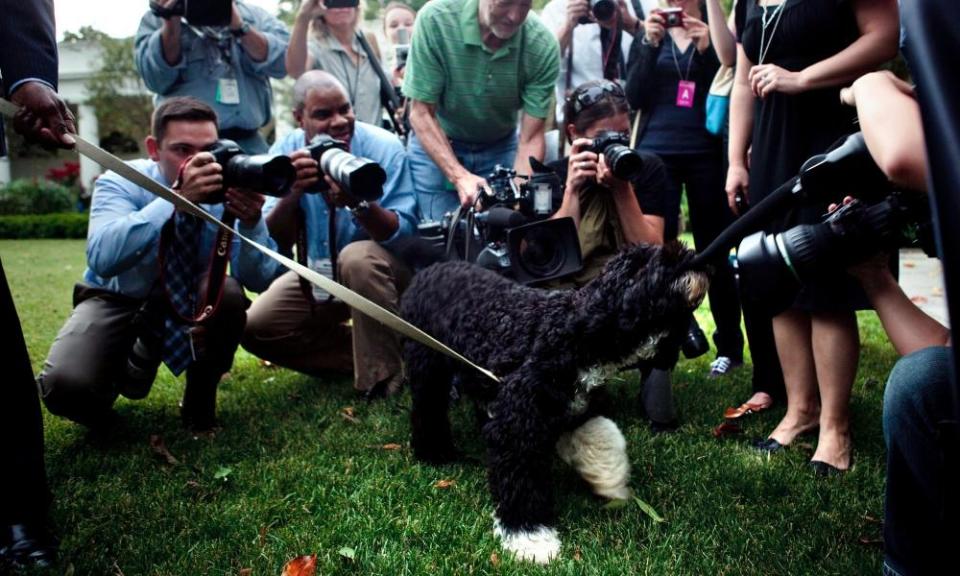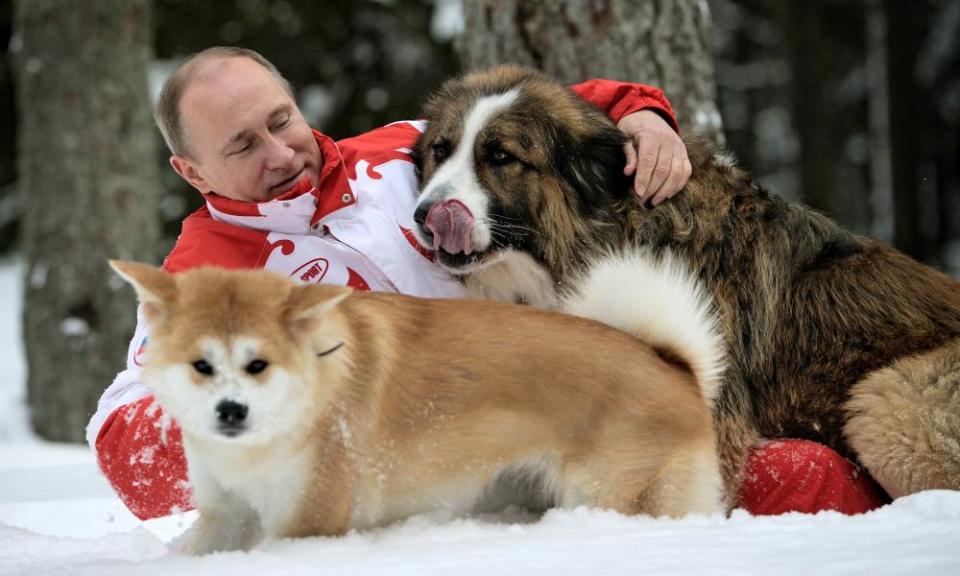Making America grrr-eat again: Major and Champ, the Bidens' 'first dogs'
With Joe Biden’s election, dignity has been restored to the US presidency: after four years marked by perverse priorities and conspicuous inhumanity, a dog will finally be back in the White House.
When Biden takes office in January, he and his wife Jill will be accompanied by their two German shepherds: Champ, 12, and Major, 2. They are the first dogs to occupy the Oval Office since the departure of Bo and Sunny, the Obamas’ Portuguese water dogs, in 2016.
For Champ, adopted as a puppy after Biden was elected vice-president in 2008 (and named for a story he used to tell on the campaign trail), it will be a homecoming of sorts.
For the rest of America, it concludes a period in presidential history that was actively hostile to man’s best friend – “like a dog” is one of Trump’s favourite putdowns – and reflects a return to founding values.

Major will be the first “first dog” to have been adopted from a shelter, two years after the Bidens adopted him from Delaware Humane Association – a rags-to-riches embodiment of the American dream.
Patrick Carroll, the executive director of the Delaware Humane Association, told the New York Times that Major “shows the real possibilities for what could happen for all the great dogs who need homes out there”.
But like other Democratic figureheads before him, Major is already at the centre of a “fake news” storm. A doctored photograph of him was shared on social media this week, forcing AP to publish a fact-check: “America’s soon-to-be first dog isn’t that big.”

In the UK, the Dogs Trust tweeted its congratulations: “We’re politically neutral, but always pro rehoming.” The two goals are not always exclusive. Boris Johnson and Carrie Symonds rescued their Jack Russell-cross Dilyn last year in part to promote Lucy’s Law, a crackdown on puppy farms.
Dilyn’s arrival at No 10, coinciding with breakdowns over Brexit, likely also doubled as media strategy: a cute puppy serving as a dead cat.
Vladimir Putin’s deployment of dogs is especially nuanced, gifting puppies to political allies and letting his big, barky ones intimidate press (though he has denied knowing of Angela Merkel’s phobia before he let his large labrador, Konni, join their meeting).
For Biden, Major and Champ have played the more traditional humanising role – though that, in an election win this narrow, might have been enough to give Biden the edge.
In September, a Biden supporter launched a “Dog Lovers for Joe” campaign with the slogan: “Choose Your Humans Wisely”.
The president-elect himself recognised early on that Trump’s views on dogs – as lowly, cringing creatures – was just one of the ways in which he offended polite society.
“Some Americans celebrate #NationalCatDay, some celebrate #NationalDogDay – President Trump celebrates neither,” Biden tweeted in October last year. “It says a lot. It’s time we put a pet back in the White House.” (Jill Biden, meanwhile, opted for “Build Bark Better”, a play on the Biden campaign slogan.)
Indeed, the Trump presidency was the first in more than 100 years not to feature a ”first dog”, despite internal encouragement that it would improve his profile. Trump said last year – part-way through a speech on immigration – he thought the idea “phony”.
It might have cost him the White House. In the last days of the election campaign, Team Joe pushed a “Bark for Biden” message featuring a dog bearing a sign: “I paid more income tax than Donald Trump (and I’m just a dog on Instagram)”.

 Yahoo News
Yahoo News 
